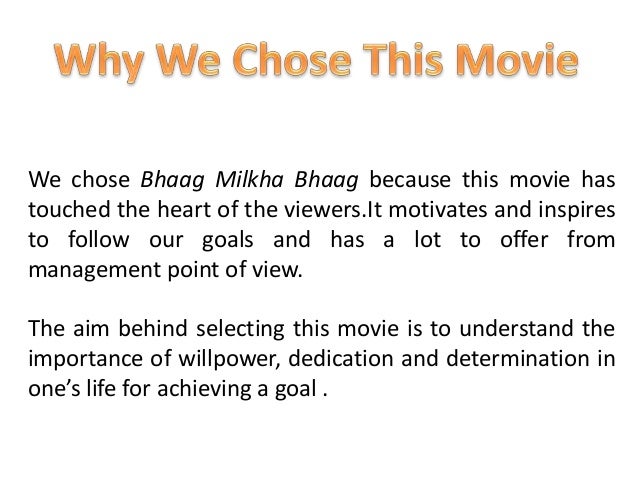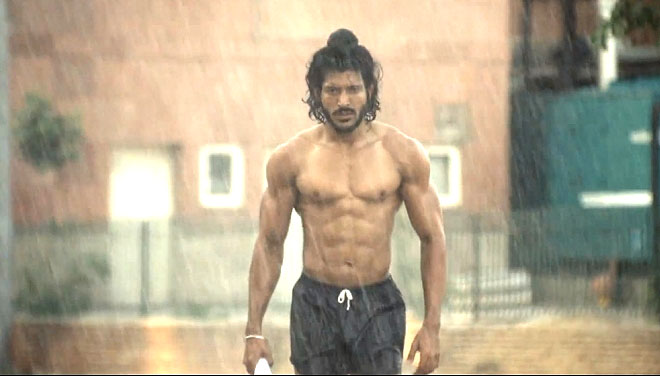


Our then Prime Minister Pandit Jawaharlal Nehru, wishes that Milkha Singh should lead the Indian team to Pakistan for friendly races, which Milkha Singh denies. “Bhag Milkha bhag” his coach encourages him, but he could never recover and finishes fourth. The movie opens with 1960 Rome Olympics, where we see Milkha Singh running, rather leading the race but he turns back, as if trying to see the thing that has been haunting him for a long long time and that’s when he starts losing. It deserves to be India's shot at the Oscars this year,may be after an astute editing out of around half an hour.As we all know, this movie portrays the life of “The Flying Sikh”, Milkha Singh, an Indian athlete, beautifully enacted by Frahan Akhtar (adult) and Master Japtej Singh (young), on the screen. The film, in short, succeeds in all departments, though it is a tad too long. Divya Dutta as Milkha's elder sister gives a beautiful performance. He is a great actor, who has not really got his due.Prakash Raj as his superior has a short but sweet role. Pawan Malhotra does a superbly essayed role of Milkha's mentor. Songs are good, and background score is taut. I don't think Bollywood has known this degree of sincerity and dedication ever before. He looks an athlete, and runs like a one. I read somewhere that he trained so hard for the role that he nearly equalled Milkha Singh's record for 400 metres sprint, close to the nearest second. Farhan Akhtar does one up on Amir as far as sincerity and passion is concerned. Rakesh Omprakash Mehra outdoes himself and makes a worthy follow up to the brilliant Rang de Basanti. Story, Screenplay, Dialogue are all outstanding.( Prasoon Joshi, take a bow). I am glad the director didn't take the easy way out here- follies make the character human, and we want to hear the stories of fallible humans conquer their demons and succeed rather than stories about God like heroes without a single blemish,which by the way are utterly unbelievable. Such indiscretions are normally omitted in an Indian biopic so as to keep the hero "untainted". The love story angle with Sonam is half baked, but it was in fact surprising to see the brief affair( more like a one- night- stand) of Milkha with the Australian Coaches' granddaughter. The scene where Milkha breaks down whilst visiting the site of his childhood house after years is the the acme of the film, and the flashback piece where a young Milkha unknowingly stumbles over the massacred dead bodies of his family, borders on the macabre, and ends up giving you goosebumps-but drives home the ugly ferocity of the partition riots with disturbing clarity. Incidents from Milkha Singh's life are superbly potrayed : Whether it is the trauma of his family's genocide during the Partition riots, his unrequited love story ,or the story of his days as a trainee in the army-each scene is handled with remarkable sensitivity and maturity. We get a glimpse into various periods of the life of the sporting hero : Exhilarating and passionate at times, and poignant and tragic at others- a roller coaster ride of genuine emotions which tugs at your heart strings and brings a tear to your eye ever so often. Non linear storytelling is used here with great results.


 0 kommentar(er)
0 kommentar(er)
